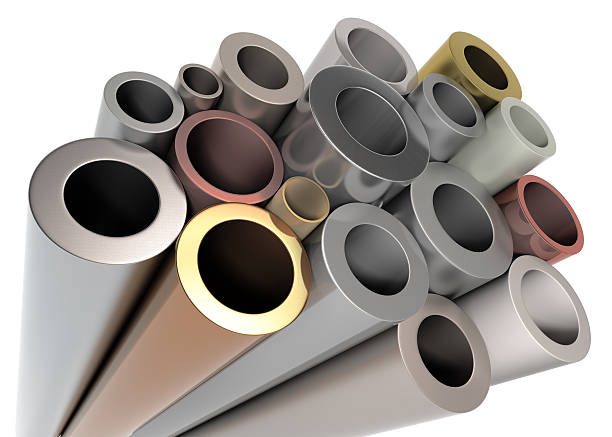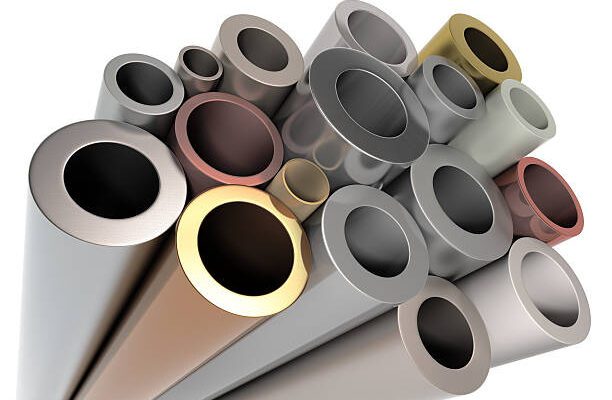
Metal alloys are of different types. One of the most used metal alloys is the Nickel Alloy 400 as it has a wide range of applications. Nickel alloy 400 tubing is made of nickel and copper alloy with excellent corrosion resistance properties even in high temperatures. Nickel 400 comprises at least 63% nickel alloyed with copper and iron.
Chemical Processing Equipment
Most chemical processing equipment is made of nickel alloy 400 due to the material’s high corrosion resistance. These chemical processing plants are mostly used to create pump shafts, piping systems, seawater values, etc. The alloy is available in multiple shapes, like nickel alloy 400 tubing, making it easier to work with in chemical processing equipment.
Chemical and Water Tanks
Most chemical and water tanks are made of nickel alloy 400. This alloy is used due to its durability, strength, and ability to be easily formed. Another property is its resistance to corrosion, which prevents water and chemicals from deteriorating and destroying the container in which they are stored. If corroded or damaged, chemical and water tanks can pose threats. Hence, nickel alloy 400 is the perfect choice for them.
Heaters
Nickel alloy 400 also has heating applications like heat exchangers, boiler feedwater heaters, and deaerating heaters. Iyy is naturally resistant to caustic alkalis, salts, and the effects of corrosion. The material can also withstand extreme temperatures, thus making it ideal for creating heating materials. It also does not react negatively or melt under heat produced in the heater. It easily holds its shape and integrity without issue.
Other Applications for Nickel 400 Alloy
Nickel alloy 400 is also used in:
Marine components like fittings, pumps, valves, marine fixtures, and piping system; condensers, pumps, fittings, and shafts; pump shafts, doctor blades, oil-well equipment tools, valve trim, springs, marine propeller shafts, and fasteners; chemical and hydrocarbon processing apparatus; specs frames, aerospace-related products, and musical equipment; fitting to connect pipe and tubes in power, petroleum, construction, gas, chemical, shipbuilding mad metallurgy industries.
It also makes an essential component in chemical plant equipment and boiler feeders. It is ideally used in rod or wire form since it is excellent for trolling wire due to its resistance to seawater. It provides incredible quality for various types of mechanical and engineering applications. Due to its toughness, it is also used in nuclear power plants, cement, mining, and the oil and gas industry.
Industrial applications of nickel 400 alloy include:
Crude oil distillation towers, oil refinery crude columns, propeller and pump shafts, feedwater and steam generator tubing, pickling bat heating coils, simple petroleum stills, deaerating heaters, valves, pumps, fittings and fasteners, chlorinated solvents, etc.
Other industrial applications of nickel 400 alloy include:
Crude oil distillation towers, oil refinery crude columns, propeller and pump shafts, feedwater and steam generator tubing, pickling bat heating coils, simple petroleum stills, deaerating heaters, valves, pumps, fittings and fasteners, sulfuric acid and hydrofluoric acid alkylation plants, chlorinated solvents, gasoline and freshwater tanks, chemical and hydrocarbon processing equipment, metal instruments, brine heaters and sweater scrubbers in tanker inert gas systems.
Bottom Line
The corrosion-resistant ability and other important features make nickel alloy 400 important in various industries. Apart from the ones mentioned above, this alloy has many other applications.
Featured Image Source: https://media.istockphoto.com/id/183766185/photo/stack-of-metal-tubing.jpg?s=612×612&w=0&k=20&c=3YK3tLW3CckS1xahbZBTWDgOwfR2n8AV1grJcKF3aK8=

